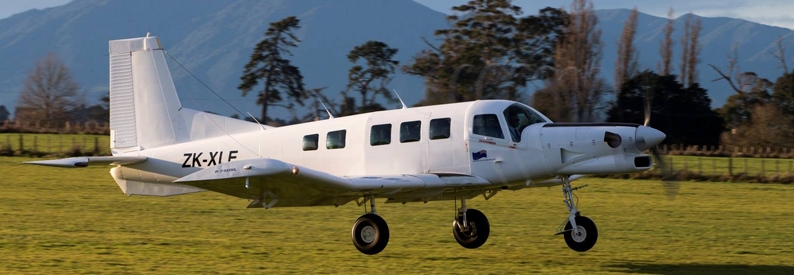The Papua New Guinea (PNG) government is allocating PNK500,000 kina (USD138,476) to Niugini Aviation Services, Adventist Aviation Services (Goroka), and Air Sanga (Port Moresby) to fly out coffee beans from remote airstrips.
The funding, allocated via the Coffee Industry Corporation (CIC) through the Freight Surety Scheme, will see Niugini Aviation Service receive PNL300,000 (USD83,016), and Adventist Aviation Services and Air Sanga each receive PNK100,000 (USD27,695). The money is paid upfront to the airlines on behalf of the coffee growers, who work in some of the country's most remote and disadvantaged areas. The freight cost is recouped at the point of sale by the CIC, with the balance going to the growers.
The freight subsidy scheme specifically targets so-called "third level airlines and shipping companies." Port Moresby-based Niugini Aviation Services says it flies to some of the country's most remote and isolated airstrips. The aircraft register maintained by PNG's Civil Aviation Safety Authority (CASA) indicates the carrier operates four Pacific Aerospace P-750 single-engine turboprops registered as P2-BWE (msn 161), P2-BWC (msn 136), P2-RNA (msn 184), and P2-RNB (msn 190), plus a single Cessna (single turboprop) 206.
The same register reveals Air Sanga, also based in Port Moresby, flies four aircraft, including two DHC-6-300s registered as P2-ASM (msn 389) and P2-ASL (msn 219), a Pacific Aerospace P-750 registered as P2-ASZ (msn 179), and a Cessna single-engine turboprop U206 registered as P2-MDC (msn U206-02738). Meanwhile, Adventist Aviation Services, backed by the Seventh-day Adventist Church, provides low-cost, reliable transportation into PNG's remote highlands and islands with a fleet of three Pacific Aerospace P-750s, including P2-SDA (msn 201), P2-SDC (msn 177), and P2-SDF (msn 188).
CIC CEO Charles Dambui told Port Moresby's Post Courier newspaper that approximately 3,000 tonnes of coffee beans still need to be flown out from 67 airstrips, most of which cannot accommodate aircraft bigger than Twin Otters Cessna 206s, or P-750s. He says every kina spent on the FSS generates a 180% return.
